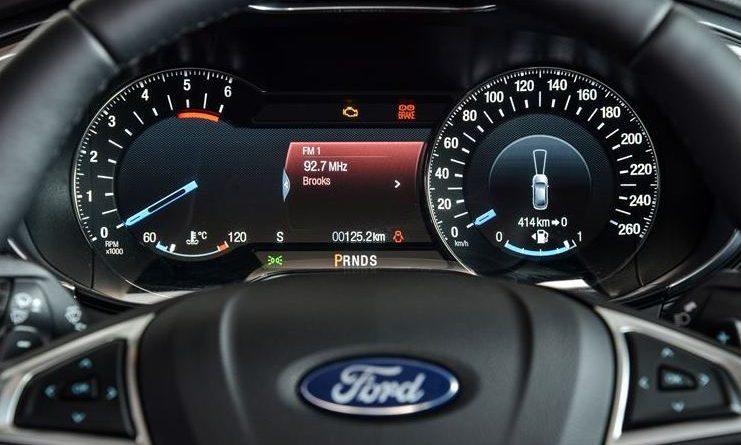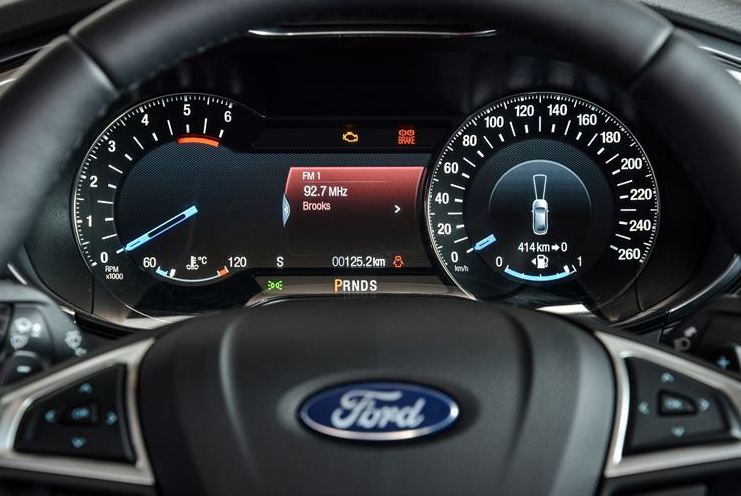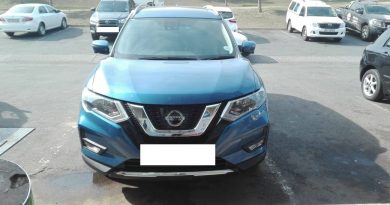Ford Announces New European Research Collaborations for Innovation in Mobility and Autonomous Vehicles
- Ford President and CEO Mark Fields outlines Ford Smart Mobility plan during International CAR Symposium in Bochum, Germany, and announces new research collaborations driving innovative thinking in mobility and autonomous vehicles
- Ford partners with RWTH Aachen University to study innovative business models and customer expectations during the two-year Personal Mobility Experience Innovation project
- Ford also contributes to U.K. Autodrive driverless and connected cars initiative
BOCHUM, Germany, Feb. 4, 2015 – Ford Motor Company today announced new research collaborations driving innovation in mobility and autonomous vehicles to help solve future global transportation challenges.
This month, the Ford European Research & Innovation Center, Aachen, Germany, and the Technology and Innovation Management Institute of RWTH Aachen University launch the Personal Mobility Experience Innovation project.
The project aims to identify the features, technologies, services and solutions that could enable Ford to meet customers’ changing preferences and expectations for personal mobility and help address societal challenges such as traffic congestion and environmental issues.
“Without question, we are embarking on one of the most transformative eras in the history of the auto industry – and in the history of Ford,” said Mark Fields, Ford president and chief executive officer, during a keynote address to the International CAR Symposium in Bochum, Germany. “This can be a threat or an opportunity. We see it as an opportunity to provide real solutions and exciting new products for millions – and ultimately help change the way the world moves.”
Ford also this year is contributing to the U.K. Autodrive initiative that is researching how driverless and connected cars can be integrated into everyday life.
Both of these projects are elements of Ford Smart Mobility announced earlier this year to foster innovation in the areas of connectivity, mobility, autonomous vehicles, the customer experience and big data.
Changing the future of mobility
The Personal Mobility Experience Innovation project brings experts from Ford and the university together to study business models from a range of industries and the transformations made by other innovators, to learn how they could be applied to the automotive industry and help deliver mobility solutions.
Ford will look at examples such as Apple and Amazon – who have expanded from being single product and service providers to delivering a full ecosystem of hardware and software platforms and services. The project will identify how such approaches could deliver enhanced car-ownership experiences; new approaches to car-sharing and personalisation of mobility solutions; and create innovative features and new business opportunities.
“This is an exciting time because while we are confronting real challenges to mobility as the world becomes more crowded and urbanised, we are also in the midst of a technological sea change that will help us find solutions,” said Pim van der Jagt, executive technical leader, Ford Research & Advanced Engineering. “This project is about tapping into the best thinking from other industries and sectors to deliver new mobility solutions.”
Four megatrends are driving the company’s thinking around innovation in mobility:
- Urbanisation – By 2030, at least 41 megacities with populations of more than 10 million people are anticipated worldwide compared to 28 today, placing pressure on existing road infrastructures and creating a need for smarter cars, smarter roads and smarter cities
- Rapid growth of the global middle class – Experts suggest the global middle class will double in size to 4 billion by 2030. Many in this growing middle class will aspire to own a car, creating an obligation for automakers to address potential global gridlock
- Air quality issues – Increasing numbers of vehicles create the need for automakers to address air quality issues with more fuel efficient and alternative powertrains
- Changing consumer attitudes – Younger generations have different mobility habits – especially in Europe where integrated urban transit systems provide a credible alternative to car-ownership – creating a need for automakers to rethink how they remain relevant
Autonomous cars
Ford also today announced that during 2015 it will contribute to the U.K. government-sponsored U.K. Autodrive initiative.
Ford will work alongside other manufacturers to study how driverless and connected cars can be integrated into everyday life, and will provide two prototype cars with vehicle-to-vehicle communication capability to help test an innovative public transport system.
Vehicle-to-vehicle and vehicle-to-infrastructure connectivity technologies such as those tested in real-world urban environments during the U.K. Autodrive initiative, also will contribute to the development of fully autonomous vehicles.
Ford’s semi-autonomous vehicle features available today include Lane Keeping Aid, Adaptive Cruise Control, Pre-Collision Assist with Pedestrian Detection and Active Park Assist – with Traffic Jam Assist coming.
A fleet of fully autonomous Ford Fusion Hybrid research vehicles is undergoing further development and ongoing road testing as Ford shifts its autonomous vehicle efforts from a research program into a vehicle development program. The vehicles use the same semi-autonomous technology in Ford vehicles today, while adding four LiDAR sensors to generate a real-time 3D map of the surrounding environment.
The vehicle can sense objects around it using the LiDAR sensors, and uses advanced algorithms in concert with high fidelity maps to help it determine where vehicles and pedestrians are located and to predict where they might move.
“At Ford, we view ourselves as both a mobility and an auto company, as we drive innovation in every part of our business,” said Fields. “These new collaborations will help us better understand and anticipate customers’ wants and needs, especially on connectivity, mobility and autonomous vehicles. We are working to make these new technologies accessible to everyone, not just luxury customers.”





